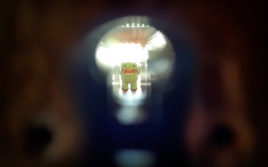Transcript
“We need to get away from the idea that knowledge, expertise and truth are obvious and given.”
This first lecture in the IF Project lecture series 2019, Thinking Between the Lines: Truth, lies and fiction in an age of populism is given by Professor Will Davies of Goldsmith’s, University of London.
Professor Davies’s powerpoint can be found here.
What does it mean to know the world? Why can’t we agree on what is true anymore? Why do many people no longer trust experts?
Professor Davies sets out to fathom what is driving the conflicts and fragmentations in the infrastructure underpinning our understanding of the world. Using his most recent book, Nervous States, as a jumping off point he analyses the the disintegration of consensus, identifying the roles played by the ubiquity and speed of technology as well as economics and psychology.
Importantly he asks, what is a fact? And in answer looks back in history, drawing on the work of Mary Poovey (A History of the Modern Fact ) who traced the origins of ‘accepted facts’ to the development of accountancy conventions in the 17th century for merchants in Amsterdam who needed to have a commonly understood, accepted, shared and trusted basis for commercial transactions.
He considers why facts that describe the world in this ‘neutral’ way, independent of political, moral and theological argument (such as where civil servants collect data on births, marriages, deaths, road and rail use, levels of immigration, home ownership etc and on which they then base policy recommendations) seem to be less and less persuasive. He suggests that this is because establishing these neutral facts takes time – in a world guided by feelings and emotions, where we have to be constantly adaptive and alert, decisions are often gut reactions, taken fast.
He ends with a plea for time – time for research, time for reflection. But concedes that this is swimming against the current tide.
Main picture:”Day 15 #Truth” by mishey_mouse, licensed under CC BY-NC 2.0
Tags: alternative facts, fake news, Mary Poovey, Nervous States by William Davies, populism, post truth


Subscribe with…